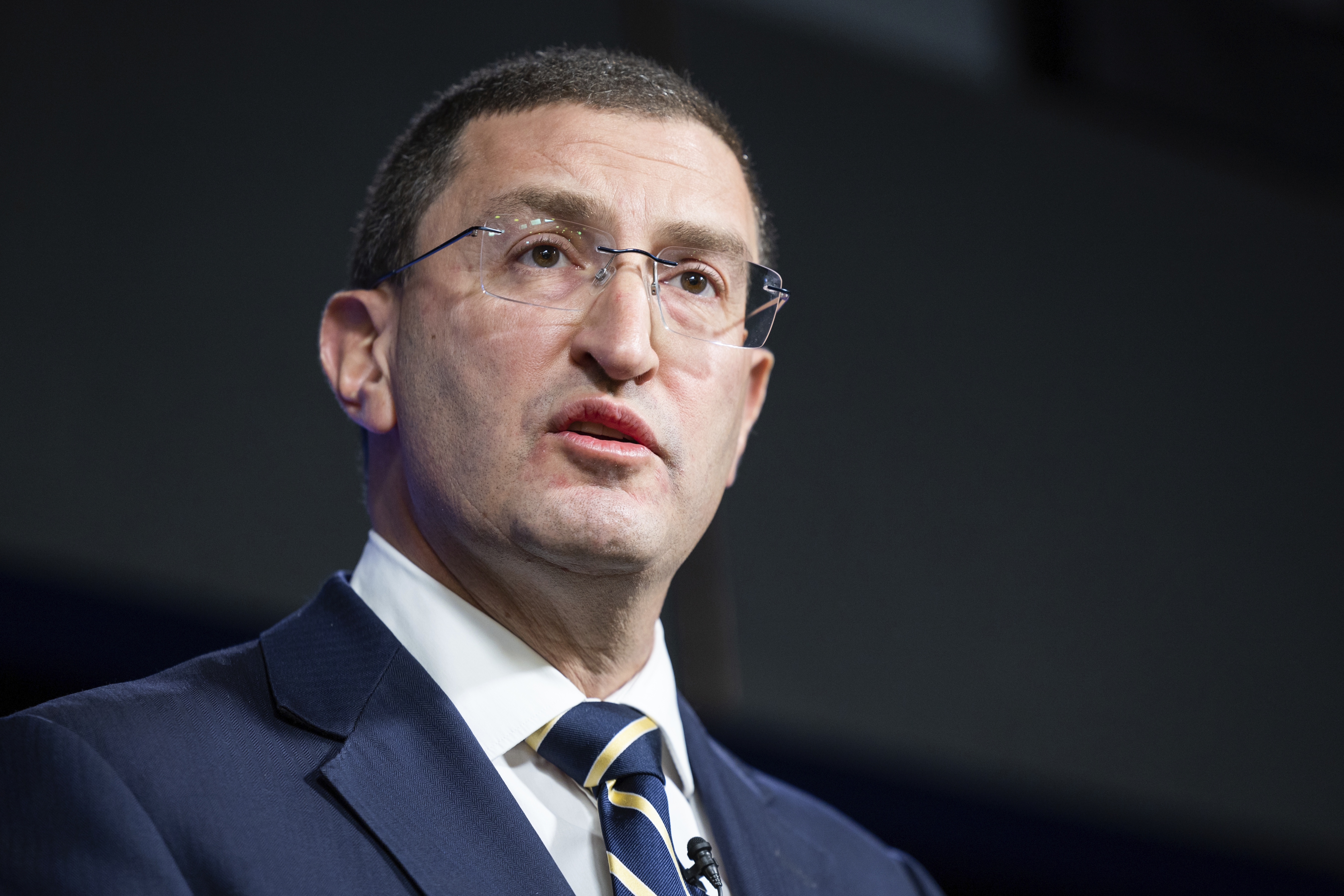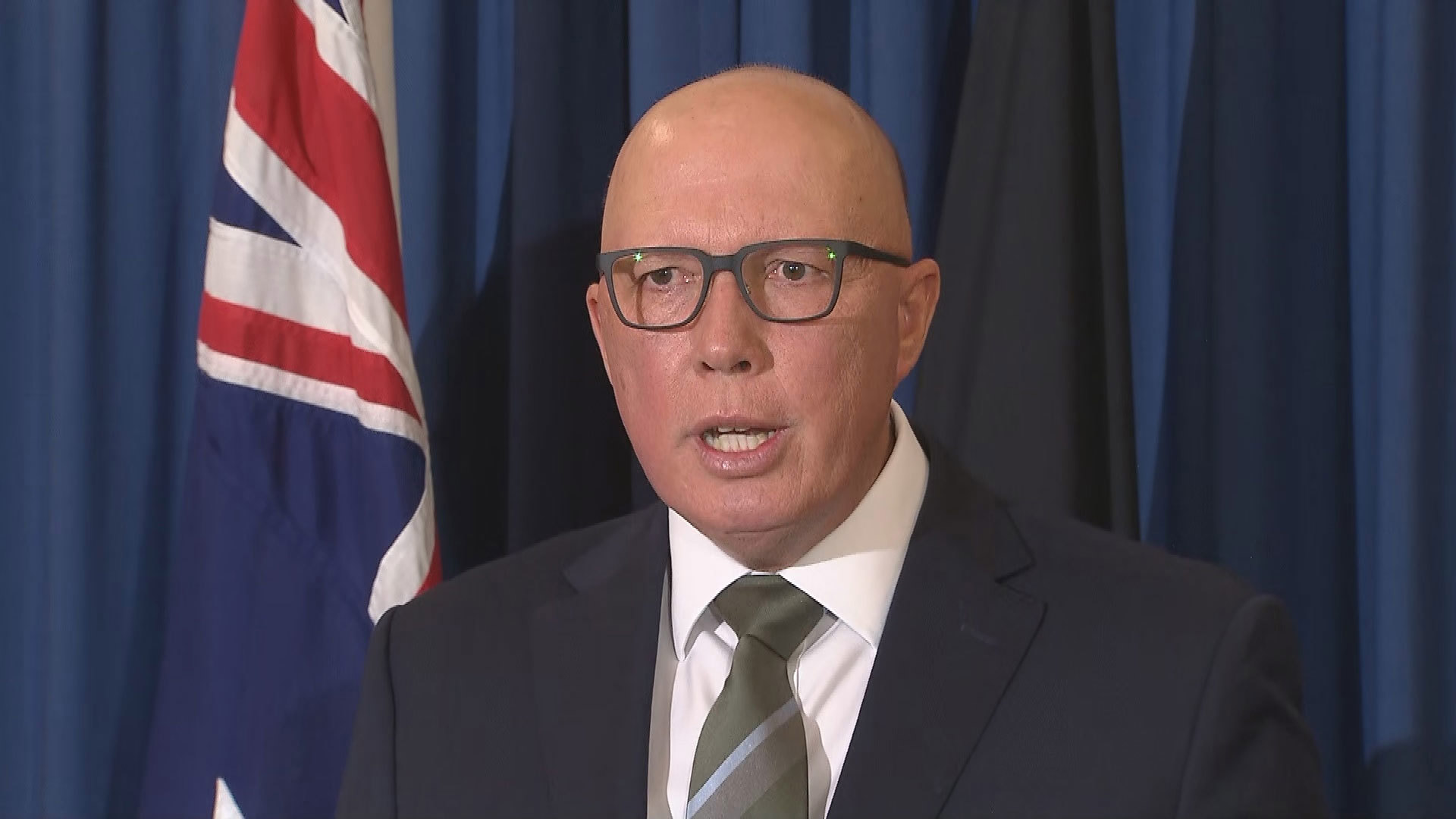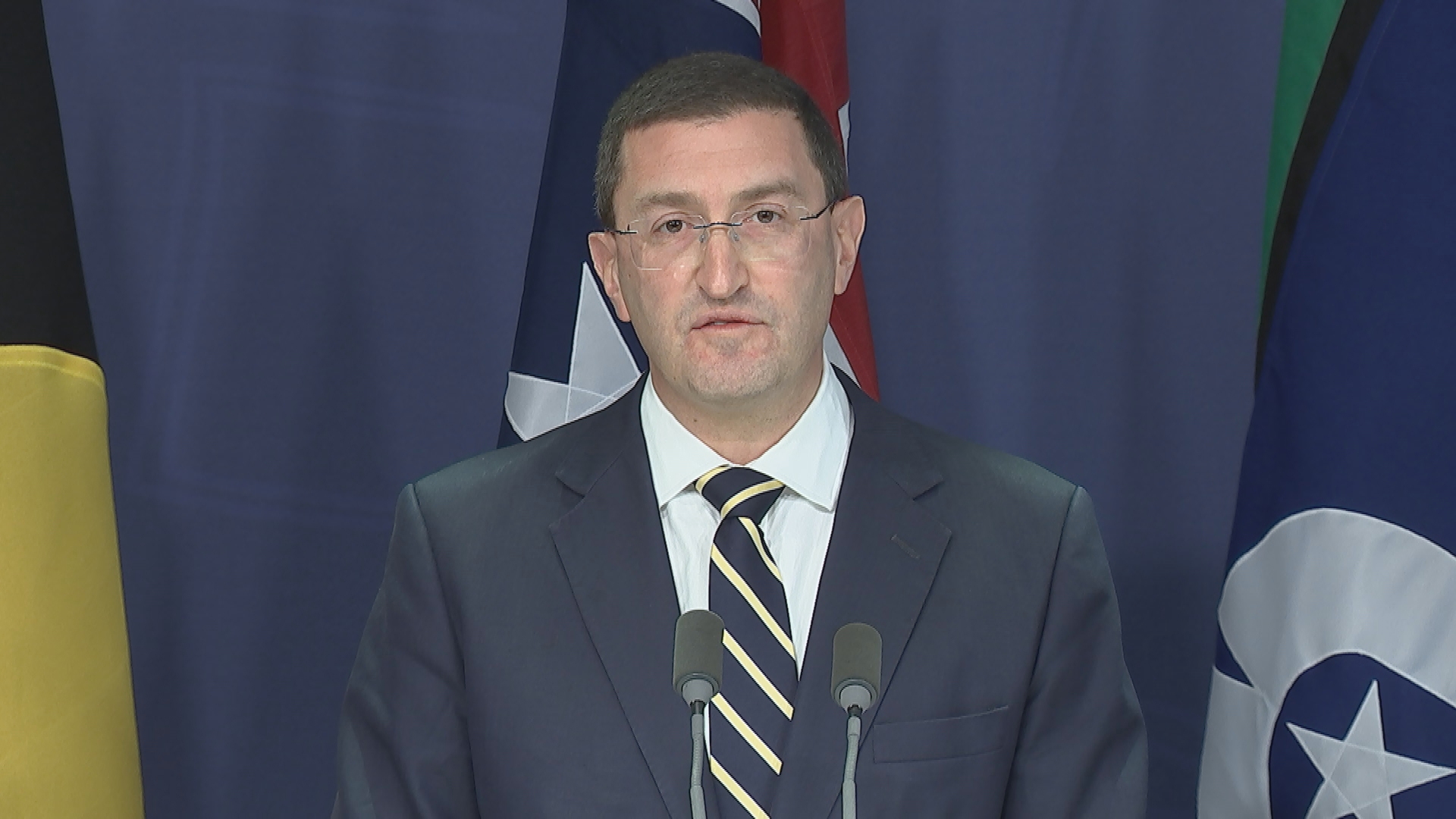Shadow attorney-general and Indigenous Australians spokesman Julian Leeser has resigned from the Liberal frontbench after the party decided to oppose the Voice to parliament referendum.
Leeser revealed today he had quit the shadow cabinet to campaign for a yes vote on the Voice.
It comes after Opposition Leader Peter Dutton revealed the Liberal Party would oppose the proposed model for the Indigenous Voice to parliament at the referendum later this year.
READ MORE: Louisville bank employee livestreamed attack that killed four
Leeser said during a press conference he resigned without "rancour or bitterness" but on a "point of principle" after he and the party came to different decisions on the Voice.
He said he has had many "respectful discussions" with parliamentary colleagues about the Voice where he has listened to their views and they had heard his but ultimately he "could not persuade them".
"I want to be able to say to my children in the future that 'your father stood up for something he believes in' and that's really important and something all of us should do," he said.
Speaking to reporters after Leeser's announcement, Dutton said he wished to thank the Berowra MP for his service on the front bench.
Durron said Leeser was a man of "great character and strength".
"Julian's been a lifelong Liberal, a great champion for many causes, including making sure that people from Indigenous communities can have a better future," Dutton said.
Leeser's decision comes after former Indigenous affairs minister Ken Wyatt resigned from the Liberal Party over its decision to oppose the Voice.
The Opposition leader said the Liberal's position on the Voice still had the overwhelming support of his party.
Leeser's views were at "odds with the overwhelming majority of the Liberal party room", Dutton said.
Dutton said he would take the next few days to consider who will take over Leeser's roles of shadow attorney-general and shadow minister for Indigenous affairs.
READ MORE: What is the Indigenous Voice to parliament and what would a referendum entail?
The opposition leader has said the Liberals will support recognition for First Nations peoples while opposing the Voice.
Rather than supporting the government's proposed model of a constitutionally enshrined Voice, the Liberals will instead argue for a legislated approach for local and regional bodies.
Liberal frontbenchers are required to follow the decisions of the party room but backbenchers are free to vote on issues as they see fit.
Leeser has championed a Voice to parliament for most of his career as a politician.
Most notably, a decade ago he worked on a proposal for constitutional recognition of First Nations Australians, which could now come to fruition in this year's referendum.
"It was about creating a new structure to improve outcomes for Aboriginal and Torres Strait Islander Australians – and it was about finding common ground," he said.
"My resignation as a frontbencher is not about personality, it's about keeping faith with an issue that I have been working on for almost a decade.
"I've also tried to keep faith with my Liberal values, my desire to conserve our institutions like the Australian Constitution with my desire to seek better outcomes for Aboriginal and Torres Strait Islander Australians.
"As a Liberal, I believe in the dignity of every Australian – in what can be achieved when they are affirmed, valued, and empowered.
"I believe that better policy is made when the very people affected by it are consulted on it."
READ MORE: Essential workers bearing brunt of housing crisis
Dutton said Leeser's was in a "unique" position because of his background.
"Julian has a history, he has worked with .. others in years past about the design of a Voice.
"As he pointed out today, he set up an organisation which was designed to bring people together around constitutional change. He has a view in relation to it being in the Constitution."
Dutton said Australians should look past a "feelgood vibe" when considering their vote on the Voice referendum.
"At a superficial level, people understand that we need a better outcome for Indigenous Australians, we all have that in our hearts," Dutton said.
"I know that people are motivated by a feelgood … vibe.
"I understand that, but you need to dig a bit deeper and look at what it is that is being proposed here.
"It is allowing a national voice that is appointed, not elected, to essentially be another arm of the government to scrutinise, to lobby, to influence every decision of government."
Dutton said a yes vote on the referendum could not easily be reversed.
"Once it's enshrined in the Constitution, it can only be changed by going back to the people. You can't legislate the Constitution and if there is an unintended consequence, because of the poor wording that the prime minister has chosen, then that won't help the reconciliation cause."
Speaking earlier today, Leeser said he didn't entirely agree with the prime minister's model and would campaign for some changes, including to the wording of the referendum question.
Leeser proposed a different model during a Press Club address last week to affirm local and regional bodies' importance and achieve constitutional recognition without symbolic language while leaving the scope and powers of the Voice to parliament.
Even though he has resigned from the frontbench, Leeser said there is plenty of work ahead.
"Today, my title changes, but my work doesn't," he said.
He said he has three goals for the remainder of his parliamentary term: to serve the people of his electorate in Berowra, to ensure the Voice amendment has a more solid footing before the referendum, and to work for the election of a Liberal government in three years' time.
Leeser said he remained a loyal Liberal Party member but would move to the backbench so he could have the "freedom to champion an issue" he thought was important.
The MP also said the referendum isn't about "politicians" but rather Australians' view and their ultimate deciding vote.
"One Saturday later this year, you will be asked to go to the ballot box and have your say on the Aboriginal and Torres Strait Islander Voice," he said.
"In Australia, changing the Constitution is your choice – every Australian's choice."
Foreign Minister Penny Wong commended Leeser for his decision to resign from the frontbench.
"Julian Leeser has shown real strength today. He put his principles first," she said.
"He put his principles ahead of partisan politics and we welcome that."
She recognised it would have been difficult for Leeser to make today's decision.
"(It) can't have been easy for him to relinquish portfolios that he cares so deeply about and he knows as much about this issue as anyone and he understands this is a once-in-a-generation chance to make a real difference in the lives of Aboriginal and Torres Strait Islander people and to help close the gap," she said.
She also foreshadowed more Liberal Party members would break from "Dutton's partisan narrow position".
"Leeser reflected today that no great nation has ever been built by dividing it," she said.
Prime Minister Anthony Albanese congratulated Leeser on his "principled decision" to support the Voice to parliament.
"Julian Leeser has made a principled decision to campaign for a yes vote at the referendum, like so many people from all sides of politics who are approaching this process in good faith," he tweeted.
READ MORE: Australia suspends trade case against China as resolution sought on barley exports
Sign up here to receive our daily newsletters and breaking news alerts, sent straight to your inbox.






